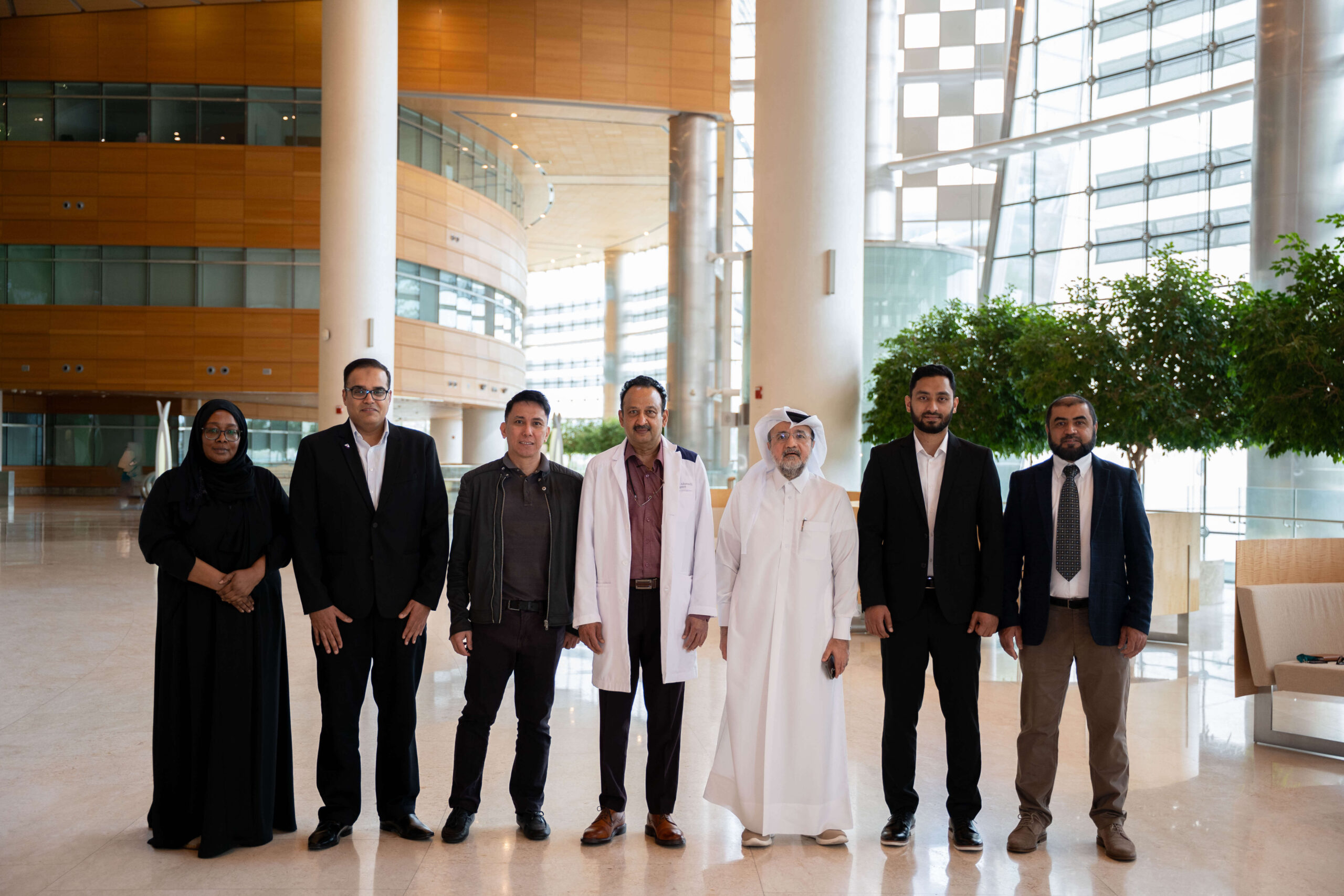Sidra Medicine Study Reveals Impact of Immune System and Microbiota on Colon Cancer Survival

Sidra Medicine and Leiden University Medical Center Researchers identify microbial composition associated with better colon cancer prognosis
30 May 2023, Doha, Qatar – A study, led by Sidra Medicine (a member of Qatar Foundation), has revealed the impact of our immune system and microbiota on our ability to survive colon cancer.
The study, published in Nature Medicine, was done in collaboration with main partner, Leiden University Medical Center (LUMC) in the Netherlands. The team analyzed various aspects of primary colon cancers, including the characteristics of cancer cells, cancer immune responses, and microbiota composition. They found that a specific composition of bacteria in the tumor and intratumoral immune response were associated with a more favorable prognosis for colon cancer patients.
Core researchers from Sidra Medicine included Dr. Wouter Hendrickx from the Functional Cancer Omics lab and Dr. Davide Bedognetti, former Director of the Human Immunology Division, while LUMC researchers included Dr. Jessica Roelands, who was previously a joint PhD student at Sidra Medicine, and Dr. Peter J.K. Kuppen, Associate Professor.

Dr. Wouter Hendrickx said: “This study challenges the current clinical guidelines on colon cancer, which rely solely on tumor-node-metastasis staging and the presence of mismatch repair deficiency. We validated our previously published ICR gene signature of tumor immune rejection which already associated with survival in other cancer types, and a novel microbiome risk score, which is heavily associated with treatment outcomes and survival rates in our colon cancer cohort.”
By combining the bacterial composition and the score for intratumoral immune response, the team identified a subgroup of patients with colon cancer, with an almost 100 percent survival rate. This score, along with ICR score, could be used as predictive biomarkers in cancer immunotherapy to successfully treat colon cancer patients. The study showcases the potential of multi-omics profiling and offers promising avenues for microbiota-targeting approaches, such as dietary interventions.
Dr. Jessica Roelands, who is also first author of the study said: “This is one of the best characterized colon cancer cohorts worldwide. We hope this resource will be used by physicians and scientists to accelerate research with the goal to improve the prognosis and cure patients suffering from this disease.”
The study will be extended by adding other layers of data, including spatial transcriptomics, immune phenotyping, and methylome analyses. These findings could lead to more targeted treatments for colon cancer patients based on their immune response and microbiota composition.
Dr. Khalid Fakhro, Chief Research Officer at Sidra Medicine said: “This study’s impact is yet another strong example of the application of precision medicine in solving health challenges like colon cancer, which ranks as the third most frequent cause of cancer incidence and the second in mortality. It also validates our ground-breaking research collaborations with partners like Leiden University Medical Center, that are changing the course of clinical research, diagnosis and care for patients worldwide.”
The study, was based on a grant from the Qatar National Research Fund (JSREP 07-010-3-005 supplemented by NPRP11S-0121-180351) and Sidra Medicine intramural funding. The brief can be accessed here: https://www.nature.com/articles/s41591-023-02384-7.








